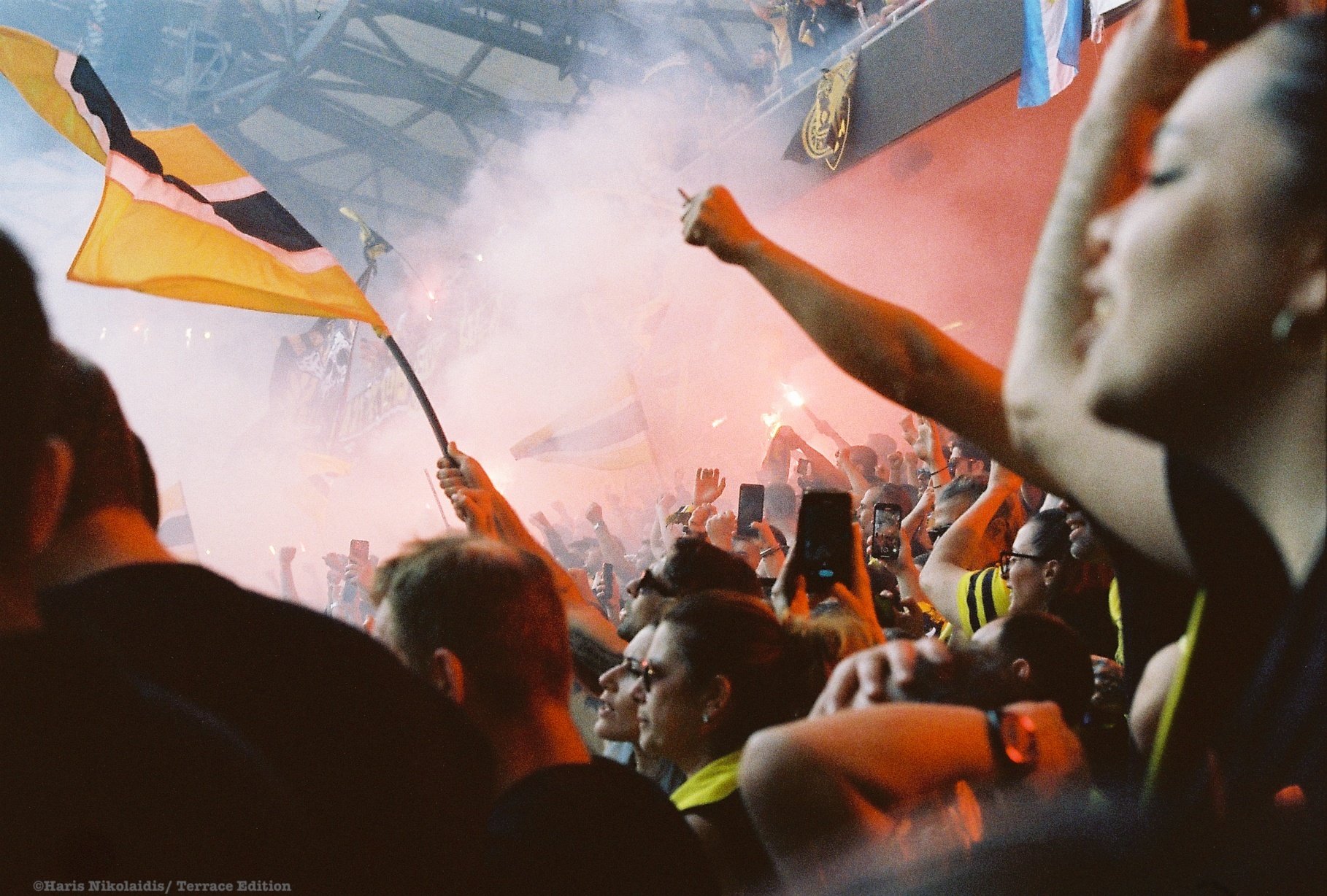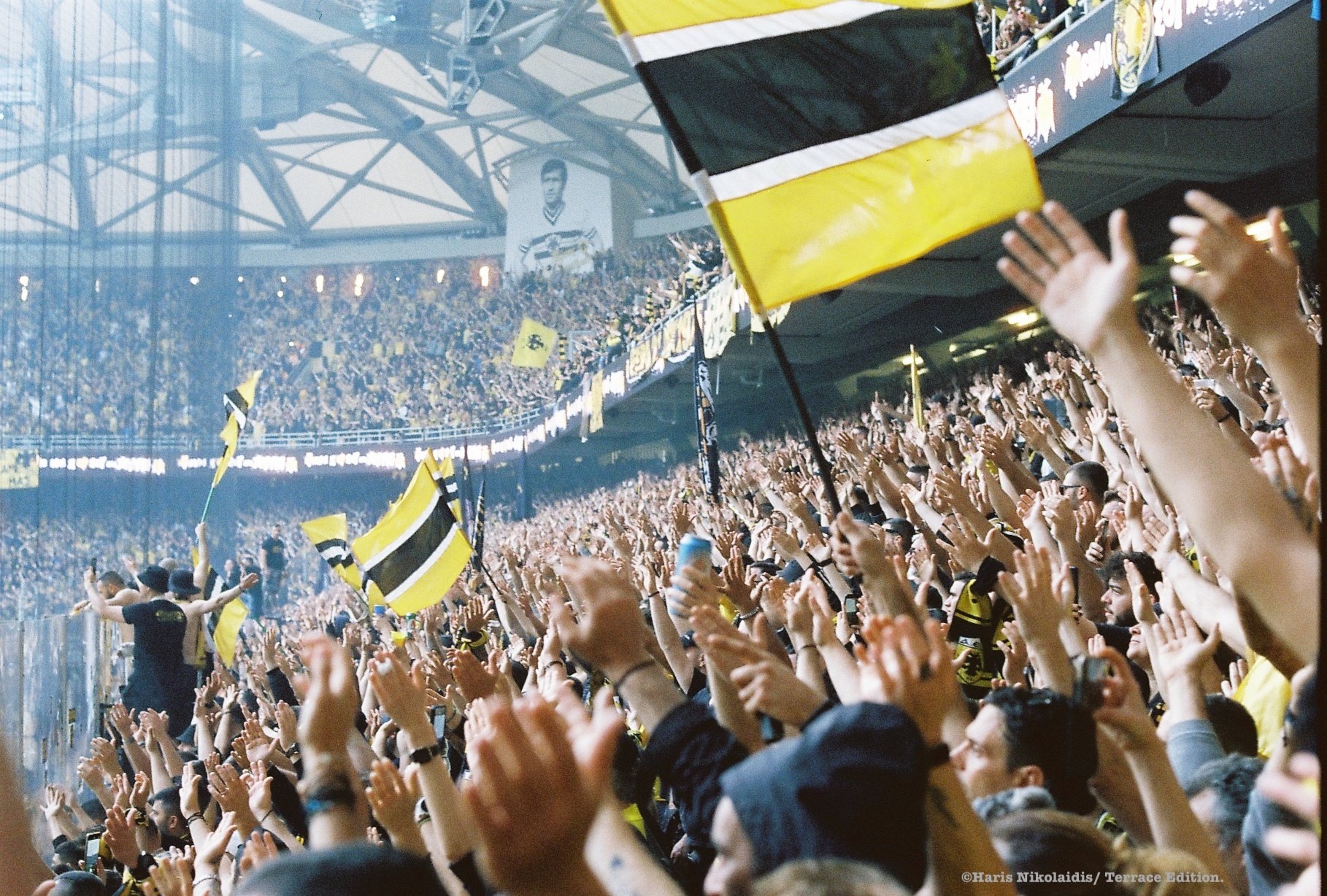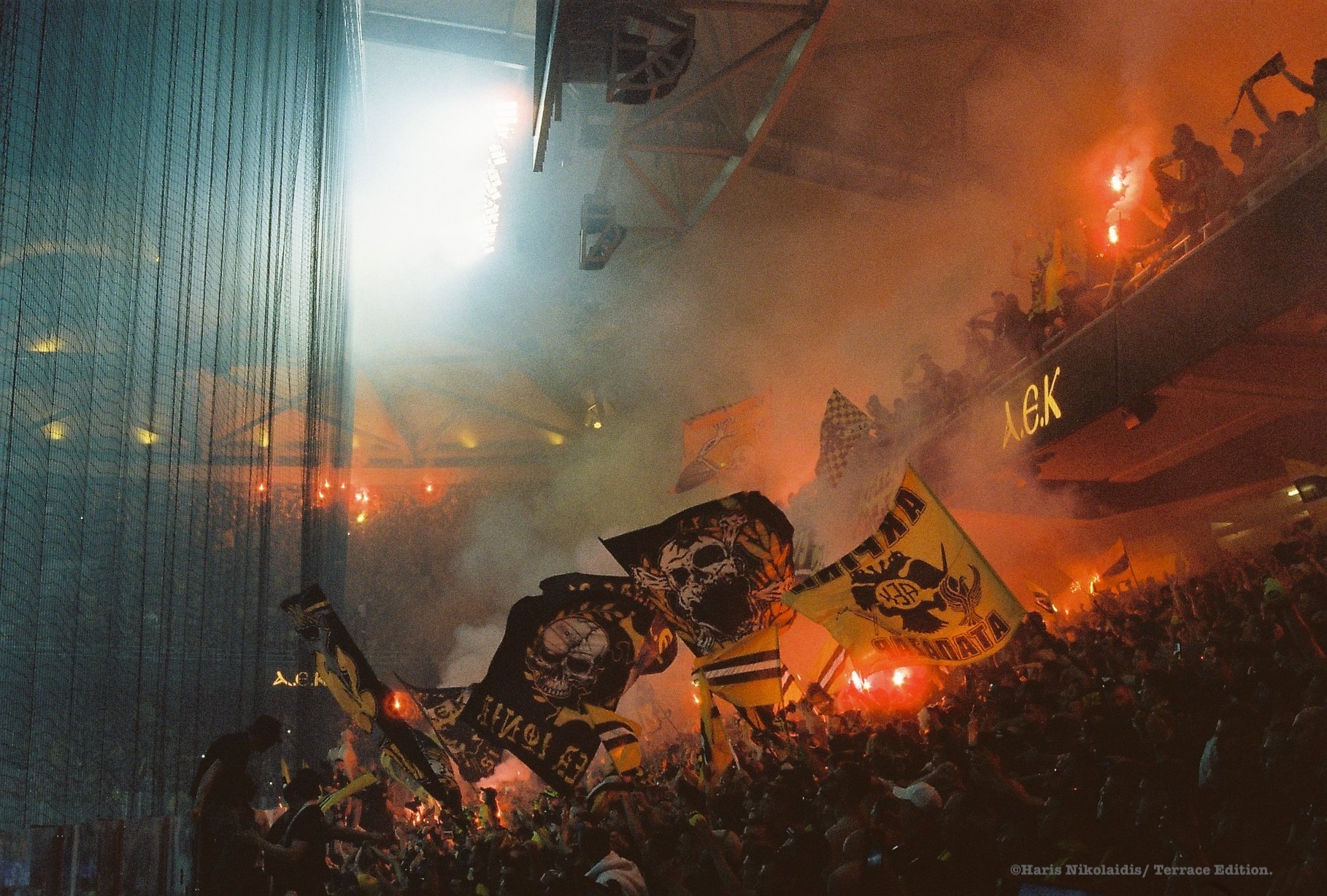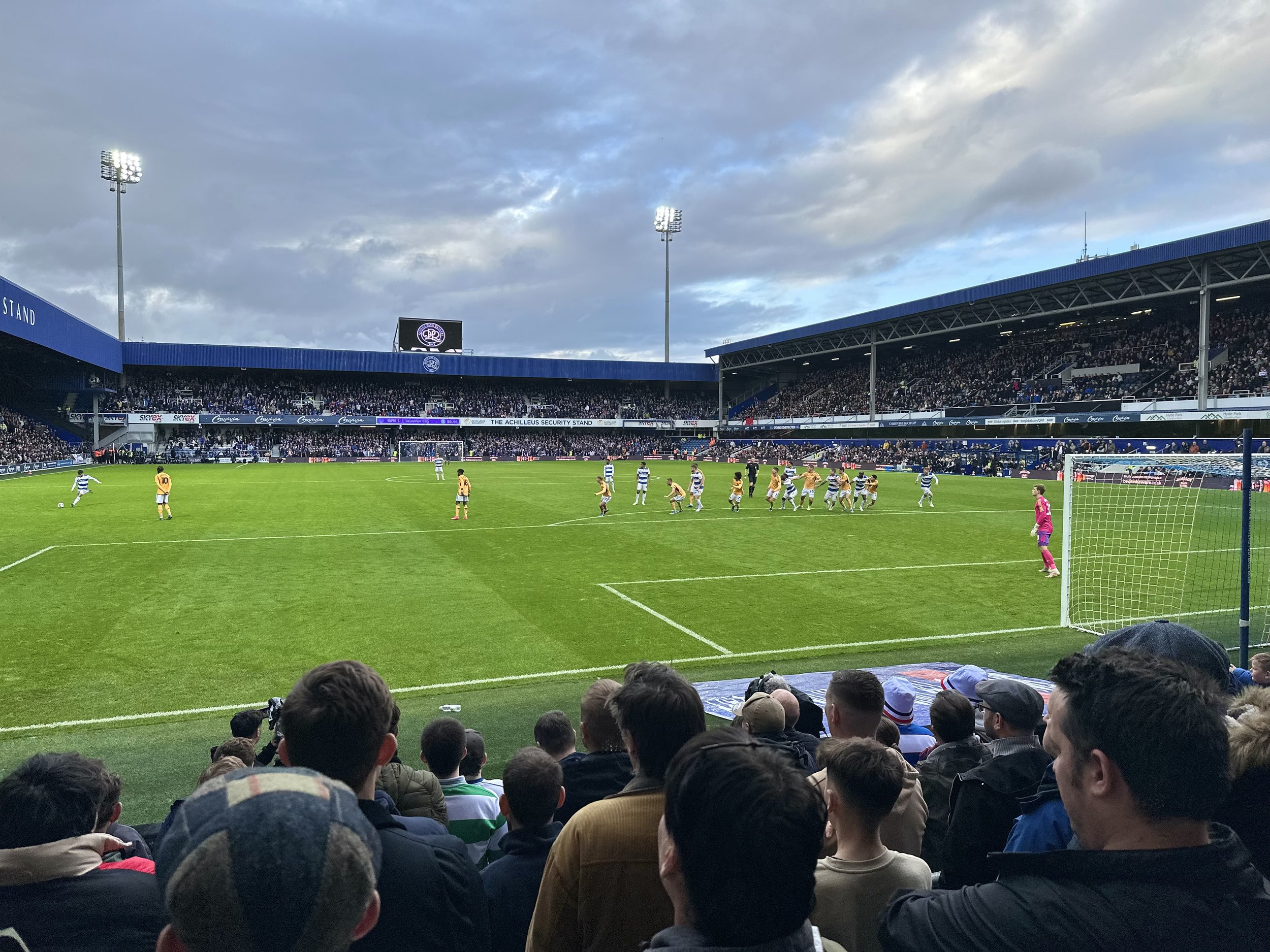AEK: Beyond the scoreboard
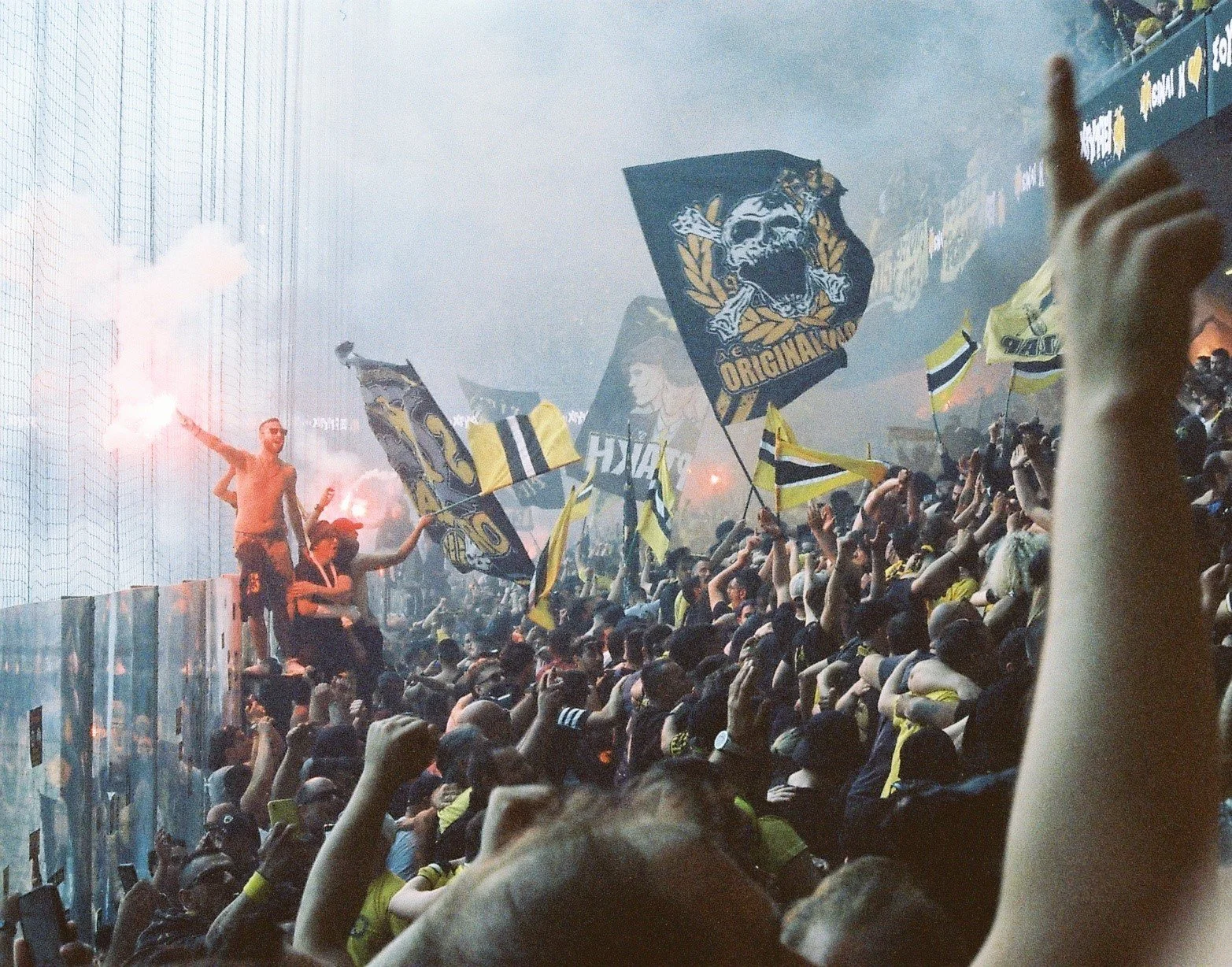
Words: Haris Nikolaidis
Images: Haris Nikolaidis
On May 14, 2023, the anticipated day unfolds. With the first light, the suburb of Athens, “Nea Filadelfeia”; founded in 1927 by Greek refugees from Asia Minor, springs to life in anticipation of the season’s final match.
A simple draw against the Volos team would secure the championship for the first time in AEK’s brand-new stadium.
The streets of Nea Filadelfeia are flooded with supporters of AEK, hailing from all corners of the neighbourhood, the country, and even worldwide, gathering to celebrate much more than a sports victory: The triumphant return to the area that gave birth to the club, marking the inaugural celebration in the new home, affectionately nicknamed “The Temple”.
For AEK and its passionate supporters, this day holds more significance than just a championship. It represents the symbolic closure of the darkest chapter, etched into history in 2003 with the demolition of their former stadium, situated at the very location where their new one now stands.
This period also witnessed the club’s financial turmoil, leading to complete bankruptcy and ultimately resulting in their relegation to the third league in 2013.
AEK made a triumphant return to the first league in 2015.
©Haris Nikolaidis/ Terrace Edition. AEK.
In Nea Filadelfeia, the stadium gates open several hours before the match begins, but unfortunately, the available space is insufficient to accommodate everyone.
The most resourceful attempt to infiltrate come with people possessing a prized ticket. The others will have to wait outside for the celebrations that will extend throughout the night.
The stadium is packed, and the match begins. However, few people are genuinely interested. Because everyone knows that it is out of the question for the team to lose this match.
The game concludes with an easy 4-0 victory for AEK, but, due to the overwhelming emotion that surrounded me, the last three goals were lost in a crowd surge.
Ultimately, what matters is not just the team, but the symbolic structure that builds around it. I believe that, in our postmodern world, where popular culture has given way to mass culture, the authentic emotions that a moment in a stadium can evoke remain one of the last refuges against alienation.
As Pier Paolo Pasolini would aptly express, “Football remains the last sacred ritual of our time.”
©Haris Nikolaidis/ Terrace Edition. AEK.
©Haris Nikolaidis/ Terrace Edition. AEK.
©Haris Nikolaidis/ Terrace Edition. AEK.
©Haris Nikolaidis/ Terrace Edition. AEK.
©Haris Nikolaidis/ Terrace Edition. AEK.
©Haris Nikolaidis/ Terrace Edition. AEK.
©Haris Nikolaidis/ Terrace Edition. AEK.
©Haris Nikolaidis/ Terrace Edition. AEK.
©Haris Nikolaidis/ Terrace Edition. AEK.
Haris is on Instagram: @haris_nicolaidis


